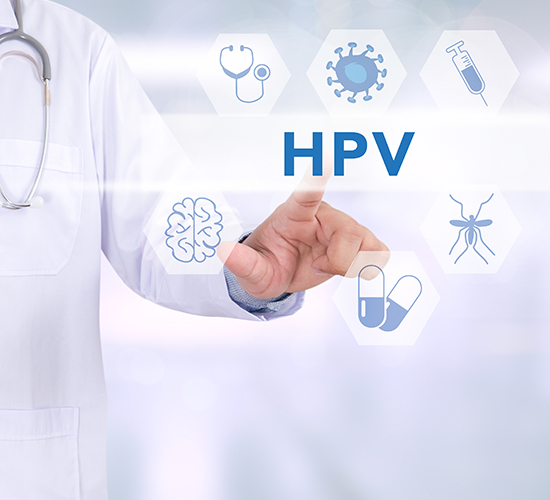The Role Of HPV In Cervical Cancer – Your Questions Answered

What Is HPV?[1]
HPV, also known as the Human papillomavirus (HPV), is a common virus with more than 150 types. Not all these strains are harmful – only some could cause genital warts as well as certain cancers. HPV 16 and HPV 18 are responsible for about 70% of the cervical cancer occurrences, they are the two highest known risk types of the HPV virus.
How Does One Get Infected By HPV?
Since HPV transmission requires skin to skin contact. Statistically, every sexually active individual is bound to contract an HPV infection at some point. Most of the time, our immune system is able to fight the infection and clear the virus from our system. But in case the infection persists, certain high-risk strains of the virus pose a risk of causing cervical cancer.
How Do I Know That I Have It?
most of the time, the virus is cleared by our body on its own, within two years without showing any significant symptoms. However, to be certain, testing yourself is the only way to know if you have an HPV infection. Since the virus is so prevalent, there is a high chance that anyone could test positive for HPV. The gynecologist usually collects the smear and sends it over to a laboratory for the detection of the HPV infection.
What Next?
There is a vaccination available against the HPV infection. However, regular screening has been recommended by health practitioners and physicians as this vaccine does not immunize the individual against all the high-risk types of the virus.
Reference:
- Roche. Understanding the role of HPV in cervical cancer. (https://www.roche.com/research_and_development/what_we_are_working_on/oncology/hpv-in-cervical-cancer.htm) Accessed on 30th January 2020.